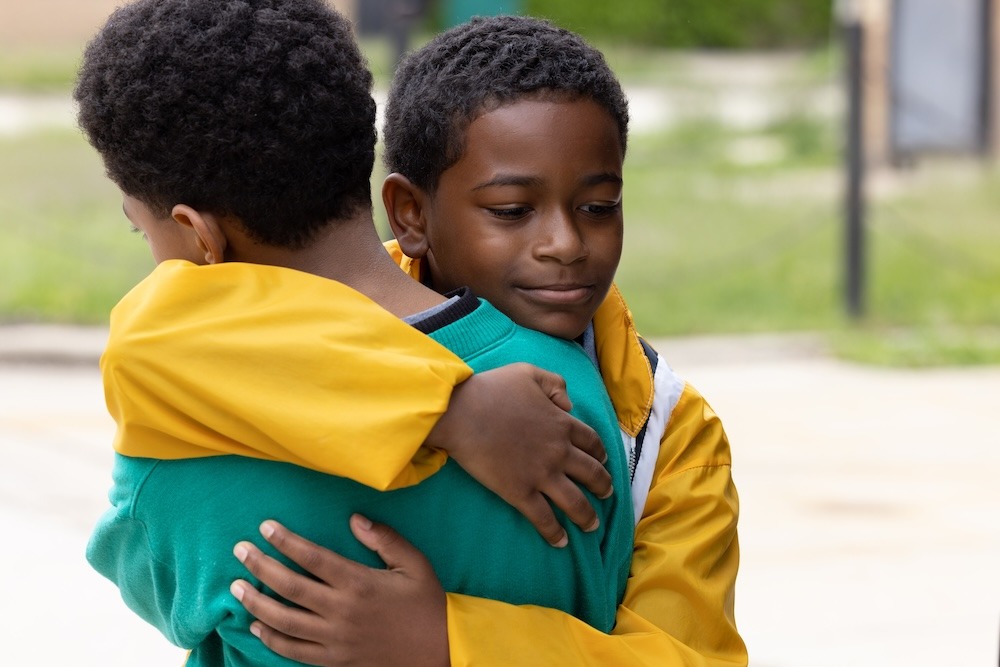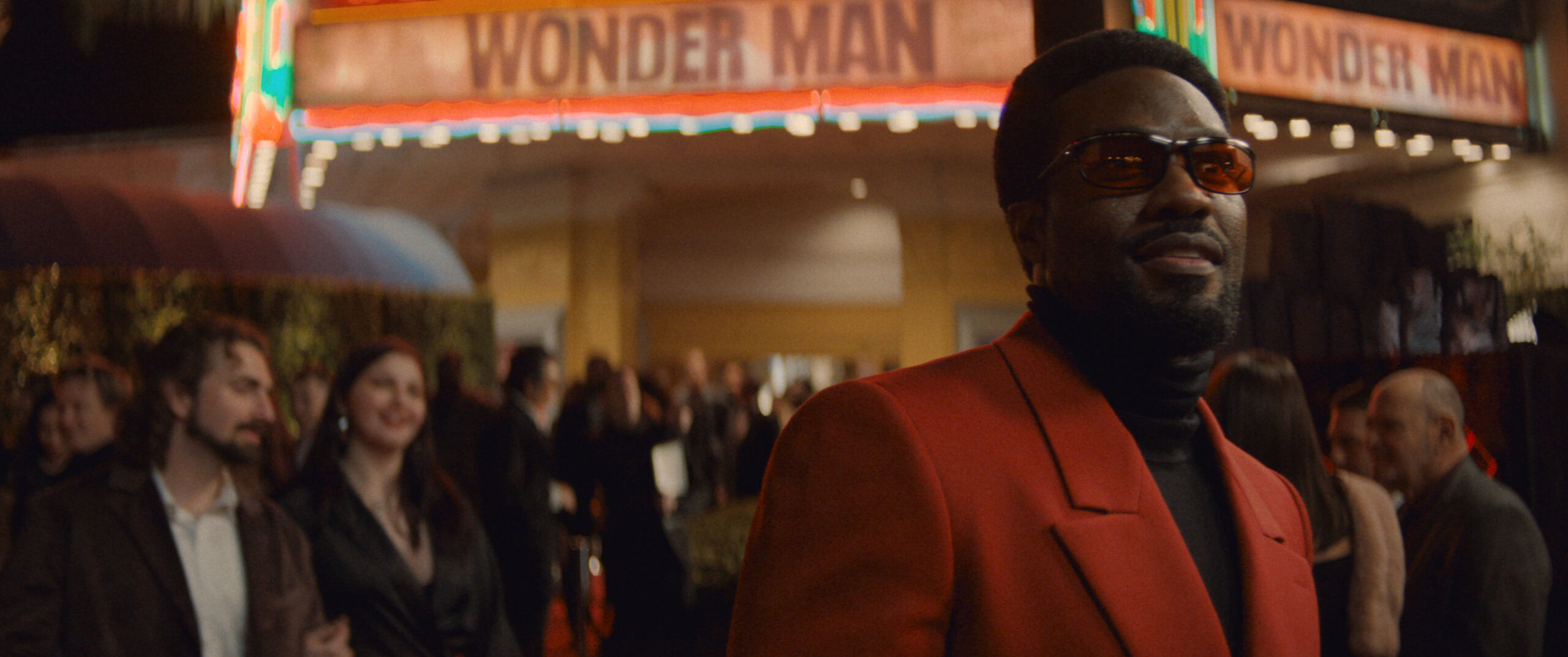We Grown Now is a coming of age story focused on the bonds of friendship. Malik (Blake Cameron James) and Eric (Gian Knight Ramirez) are best friends growing up in 1992 Chicago. Their home is Cabrini-Green, a public housing project run by the Chicago Housing Authority (CHA). Most days Malik and Eric attend school, cause youthful mischief, and practice their jumping as they dream about possibly playing in the NBA. As violent crime rises around them, Malik’s mother Dolores (Jurnee Smollett) wonders if she’s in the best place to support her family. With the possibility of separating a growing option, Malik and Eric’s friendship is put to the test.
What works in We Grown Now is the raw emotion and gorgeous cinematography. Writer and director Minhal Baig (Ramy, BoJack Horseman) weaves a tale of honesty as it explores various familial and platonic relationships. James and Ramirez’s sense of invincibility in the shadow of adversity feels weighty and relatable. These two boys can accomplish and survive anything, so long as they have each other. And as their status quo shifts, cinematographer Pat Scola (Pig, Sing Sing) leverages light in striking fashion to convey the boys’ shared wonder, awe, and fear. This, combined with the backdrop of Chicago, gives We Grown Now a stunning visual presence throughout. Every shot feels meticulously crafted to welcome audiences into Malik and Eric’s personal space.
RELATED: The Crossover Trailer | Disney+’s New Coming Of Age Series
Audiences who don’t enjoy poignant slice-of-life films may not connect with We Grown Now as much as others. Baig’s film feels very deliberate in its pacing as it often slows the proceedings way down. This allows people to soak in the environment. Narratively speaking, We Grown Now is a mere peek inside the lives of the these two boys, interested in freezing a specific moment in time. As such, the film feels like a cinematic essay exploring the culture of the CHA projects in the 90s. This analysis would be incomplete if it didn’t include the racial inequity these arrangements bred. Baig never shies away from these elements. Their presence only makes We Grown Now stronger, but they may upset or disturb some viewers.
We Grown Now is a powerful film that accurately captures the beating heart of optimism at the center of an American dream actively going stale. Baig’s conveyance of Eric and Malik allows the audience to see the world through their eyes. Translating this singular experience to film is a remarkable and laudable achievement, especially considering the inherent beauty within every frame.
Recommended if you enjoyed: Close, Boyhood, Eighth Grade, Lady Bird
 FOR FANBOYS, BY FANBOYS
Have you checked out LRM Online’s official podcasts and videos on The Genreverse Podcast Network? Available on YouTube and all your favorite podcast apps, This multimedia empire includes The Daily CoG, Breaking Geek Radio: The Podcast, GeekScholars Movie News, Anime-Versal Review Podcast, and our Star Wars dedicated podcast The Cantina. Check it out by listening on all your favorite podcast apps, or watching on YouTube!
Subscribe on: Apple Podcasts | Spotify | SoundCloud | Stitcher | Google Play
FOR FANBOYS, BY FANBOYS
Have you checked out LRM Online’s official podcasts and videos on The Genreverse Podcast Network? Available on YouTube and all your favorite podcast apps, This multimedia empire includes The Daily CoG, Breaking Geek Radio: The Podcast, GeekScholars Movie News, Anime-Versal Review Podcast, and our Star Wars dedicated podcast The Cantina. Check it out by listening on all your favorite podcast apps, or watching on YouTube!
Subscribe on: Apple Podcasts | Spotify | SoundCloud | Stitcher | Google Play




